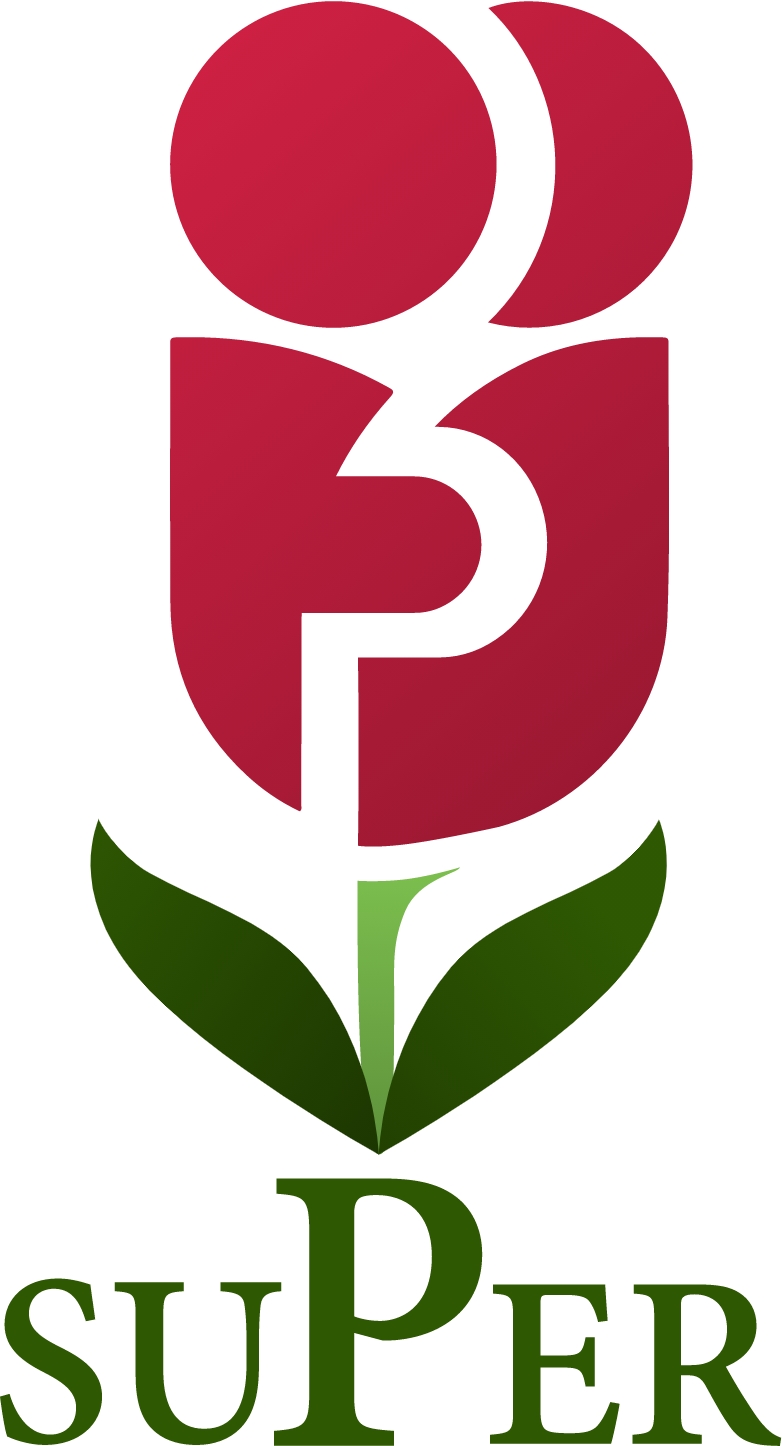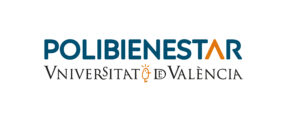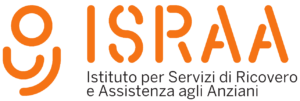PARTNERS OF THE SUPER PROJECT
The suPer project is developed by the following organizations.
POLIBIENESTAR (coordinator of the project)
The Research Institute on Social Welfare Policy (POLIBIENESTAR) is a research institute belonging to the Universitat de València (Spain). Well-known internationally, it is specialized in research, innovation and social technology. It offers technical advising and training in the social policy field. For twenty years now, it has been doing both basic and applied research on the economic, social, political and technical sustainability aspects of welfare systems. It has also been advising both the Administration and private companies on the planning, design and implementation of social welfare policies and sustainability.
Polibienestar is made up of an interdisciplinary team with more than 100 researchers, coming from the Universitat de València and 7 other Spanish and 2 international universities. Polibienestar cooperates with universities and centres from the European Union, the United States, South America, Africa and Canada as well.
Polibienestar is focused on several research areas such as health, vulnerable groups, smart cities, social and accessible tourism, social policy, governance and public administrations, and corporate economy.
Parkinson Madrid
Parkinson Madrid is a private non-profit entity made up of more than 1,900 members and established in May 1994 to serve, guide, train and inform affected people, their families and/or caregivers, professionals and society in general about everything related to to Parkinson’s disease.
On December 12, 2001, the Ministry of the Interior declared us of Public Utility, obtaining an important certificate that denotes quality, clarity and good work. In addition, we also have this declaration by the Madrid City Council.
Parkinson Madrid belongs to the Spanish Federation of Parkinson’s and, through it, to the European Parkinson’s Disease Association (EPDA). It is also integrated into the Madrid Federation for the Defense of the Neurologically Sick (FEMADEN) and, through it, into the CERMI and the Platform of Voluntary Entities of the Community of Madrid (FEVOCAM).
ISRAA is an Italian public senior care provider based in Treviso. 700 employees: 70 nurses, 350 carers, 15 psychologists, 17 physical rehabilitation trainers, 12 GPs, 21 care managers. ISRAA covers a wide range of the possible needs of seniors: 600 seniors with dementia disease in home care, 850 living in 4 nursing homes, 2 day care centres completely dedicated to seniors suffering from different types and levels of dementia. ISRAA also provides 32 flats for autonomous seniors. ISRAA has knowledge and experience in assisting seniors to remain independent as much as possible despite their functional and cognitive limitations, by promoting positive feelings in an age-friendly environment, to improve the seniors’ self-efficacy and to raise their perception of quality of life.
At EU level ISRAA is member of EIP-AHA initiative as member taking part of D4 AFE group and coordinating C2.5 Group on Business model in care and ICT design for olders, of S.I.P.I. (Italian Society of Psychology on Ageing – Padua University), ENSA Network, ELISAN Network, Nord Sea Dementia Group. In 2013/2015 ISRAA was a partner in LLP-GRUNDTVIG, Project named “IN MOTION”, with methodological supervisor role to define specific guidelines for active aging and healthy lifestyles about nutrition, motion and cognitive stimulation.
Since 2013 ISRAA has been involved as partner and lead applicant in several EU programmes tackling various themes:
- Frailty prevention in 3rd Health Programme: SEFAC Project
- Raising awareness about ageism (WISELIFE), support the resilience of informal caregivers with social media (RESIL4CARE), promotion of physical activity in the third age (PA4AGE), training for health and social practitioners about Parkinson disease (SUPER) and aggressive behaviors of older people (PRAGRESS) and prevention of heat waves (HOPE) in Erasmus+ Programme
- User engagement and codesign in the use of technology for the independent living of older and for the early diagnosis of the major neurological diseases that are ValueCare project (H2020 DTH11-2019) and niCE Life Project in Interreg Central Europe.
- Seniors social isolation using ICT tools in Interreg IT-AT: E.CA.R.E Project
- Development of an age friendly environment in Interreg Alpine Space Programme: TAAFE Project.
INTERACTIVE 4D is a French SME specialized in the design and development of serious games and gamified educational tools since 2010. Interactive 4D designs and develops serious games and gamified e-learning tools to meet the growing needs in the fields of:
- Professional training (learning games, LMS plateforms and gamified e-learning modules)
- Education and public awareness (cultural heritage, environment, cybersecurity, entrepreneurship…)
- E-health (health assessment tools, telemedicine, health education of patients, training of healthcare professionals).
International Foundation for Integrated Care (IFIC)
As the leading international voice in integrated care, IFIC’s mission is to inspire, influence and facilitate the adoption of integrated care in policy and practice around the world.
How does IFIC seek to achieve its vision?
Through leading the movement for change and in the development and exchange of knowledge on integrated care.
Among whom?
Among academics, researchers, managers, health and care professionals, users, carers, policy and decision makers throughout the world.
Leading the movement for change
Operating as a centre for excellence and underpinned by a high quality and evidence informed approach, IFIC seeks to work in collaborative partnership with its beneficiaries to develop, test, apply and lead this movement. IFIC seeks to do this through the development and exchange of ideas among academics, researchers, managers, health and care professionals, users and carers of services and policy and decision makers throughout the World.





